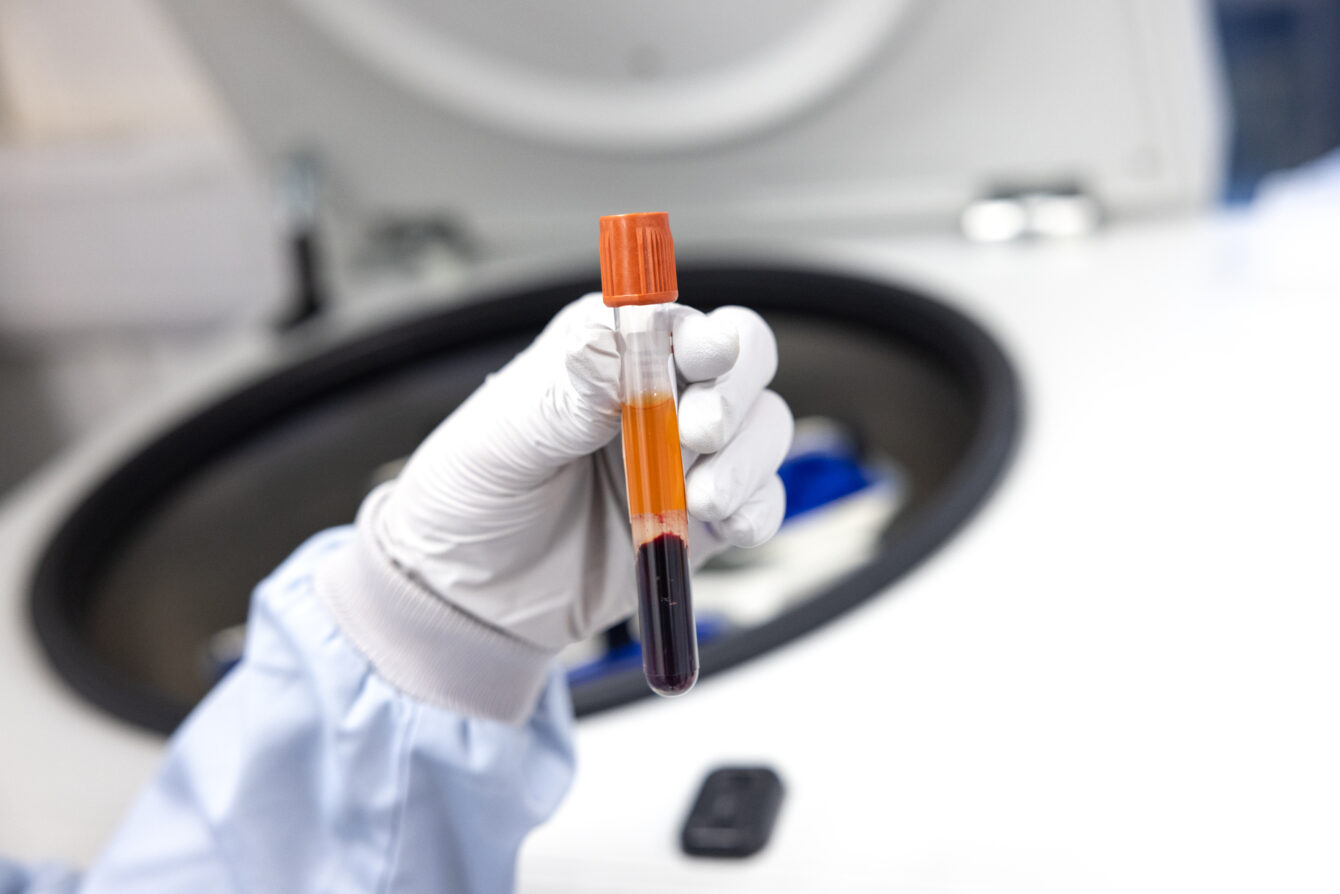Treatment CAR-T Cell Therapy could offer hope for blood cancer patients

September is Blood Cancer Awareness Month, a time dedicated to raising awareness of blood cancers, which often do not receive the same recognition as other cancer types. According to the charity Blood Cancer UK, over half of Brits cannot name a single blood cancer symptom. With over 100 different types of blood cancer, patients often know the name of their specific diagnosis (such as leukaemia, lymphoma, myeloma, myelodysplastic syndrome, CML etc.) but may not realise that these are all forms of blood cancer. Collectively, blood cancers are the third most common group of cancers. Raising awareness among both the public and healthcare professionals is critical to improving early detection and diagnosis.
At Imperial College London and Imperial College Healthcare NHS Trust, September allows us to reflect on the progress made since last year’s Blood Cancer Awareness Month. One of the most exciting aspects has been the delivery of CAR-T cell therapy for lymphomas (a type of blood cancer that affects white blood cells) and acute lymphoblastic leukemia (a rare type of cancer that affects the blood and bone marrow). This year, the National Institute for Health and Care Excellence (NICE) also approved several new bispecific antibody therapies (BITEs) for lymphoma and myeloma (a type of cancer that develops from plasma cells in the bone marrow). BITEs are special proteins designed to help the immune system fight cancer. CAR-T and BITEs are a new wave of therapies, that harness the immune system to kill the cancer cells, rather than relying on conventional chemotherapy. Following successful clinical trials, these therapies are now broadly approved for use in patients who have not responded to chemotherapy, offering potentially curative treatments for patients who previously faced poor prognoses. Clinical trials for CAR-T cell therapy are in progress for multiple myeloma, which is exciting, offering hope for longer remissions for patients with a cancer subtype where no curative treatments currently exist.
What is CAR T-cell therapy?
CAR-T cells are a patient’s T-cells (a type of white blood cell) that are engineered to recognise and attack their cancer cells. The T-cells are collected from the blood using a simple outpatient process called apheresis. The cells are then sent to a lab, where scientists genetically modify them by adding a gene that enables them to produce proteins on their surface, known as chimeric antigen receptors (CARs). These receptors allow the T-cells to specifically target proteins on the surface of cancer cells, leading to their destruction.
The procedure for patients is quite involved typically requiring a two to three week hospital admission; prior to receiving the CAR-T cells, patients require a few days of chemotherapy (‘lymphodepletion’) to prepare their bodies for the new CAR T-lymphocytes to grow and expand in the blood. The CAR-T cells are then infused into the blood in a process fairly similar to a blood transfusion. In the days following the infusion, there are some very specific complications related to the CAR T-cells expanding in the blood and targeting the cancer, with side effects mainly due to immune activation. These side effects can be quite dramatic, and 15 per cent of patients will require intensive care support. However, with increasing expertise and experience over the last few years, complications and patient management are improving all the time.
Challenges and future directions
One of the major drawbacks of CAR-T cell therapy is the high cost. Whilst the price that NICE pays for CAR-T therapy is confidential, the list price for AxiCel, one of the main CAR-T products, is £280,451, with additional costs to the NHS for patient care adding tens of thousands of pounds. At Imperial, we have academic plans in place to open trials where we manufacture CAR-T ‘in-house’ which could significantly reduce costs for the NHS in the long term. Given CAR-T’s game-changing potential and the expanding indications of its use, finding ways to make this therapy more accessible and affordable is crucial.
At Imperial NHS, as well as delivering NHS-funded CAR-T treatment for lymphomas and acute lymphoblastic leukaemia, we also have CAR-T clinical trials in progress for their use in multiple myeloma, where there is currently no NHS reimbursement.
As haematologists, clinicians and clinical academics, we are all too aware that groundbreaking discoveries in our field of interest often help improve the understanding of biological mechanisms, diagnosis, and treatment of diseases in other areas of medicine. CAR-T is another resounding example of this. Indeed, after some spectacular therapeutic successes in early clinical trials, the use of CAR-T is also being explored in non-malignant conditions. This includes autoimmune conditions including lupus nephritis, where there is a specific protein that can also be targeted by the CAR-T. We are excited to be involved in supporting colleagues in other specialities to deliver these trials too.
Finally, at the Centre for Haematology at Imperial’s Department of Immunology and Inflammation, scientists and haematologists are pioneering the development of the next generation of CAR immunotherapy. Instead of using T cells, this new approach utilises a different type of immune cell called iNKT cells. Invariant natural killer T-cells (iNKT cells) are a special type of immune cell that acts like a bridge between two important parts of the immune system: T-cells and natural killer (NK) cells. Importantly, these iNKT cells are not obtained from the patients themselves but from healthy volunteers; and when equipped with a CAR to make CAR-iNKT, they appear to be more powerful against blood cancers such as leukaemia, lymphoma and myeloma. We look forward to the clinical trials that will first test CAR-iNKT cells in patients with lymphoma in the next 12 months.
More information on Blood Cancers and CAR-T cell therapy:-
https://lymphoma-action.org.uk/
https://www.leukaemiacare.org.uk
https://www.cancerresearchuk.org/about-cancer/treatment/immunotherapy/types/CAR-T-cell-therapy
https://www.macmillan.org.uk/cancer-information-and-support/treatments-and-drugs/car-t-cell-therapy




